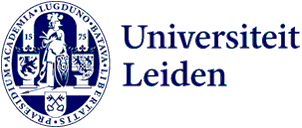
Can the Netherlands deny entry to international students?
Dutch education minister Dijkgraaf wants to reduce the number of international students. But is the Netherlands allowed to do so? And if so, is it even desirable? These questions were addressed by Mark Klaassen, associate professor at the Europa Institute, during the final meeting of the Honours College Law on 12 June.
'Who here considers themselves to be an international student?' Klaassen looks around the room. Only one student raises her hand. 'Who wants to do part of their studies abroad?' This time a lot of hands shoot up into the air. Klaassen laughs, 'Then why don't you guys see yourselves as international students?' Thus begins his lecture on the dilemma surrounding international student migration.
Letter to the House of Representatives
The lecture was inspired by Minister Dijkgraaf's letter to the House of Representatives in which he said he wants to limit the influx of non-EU students. He cited the reason for this as the lack of capacity at universities and colleges of higher education and the immediate shortage of accommodation for both Dutch and international students. Dijkgraaf: 'The quality of education is under pressure due to overcrowded lecture halls and a high workload of lecturers. In addition, accessibility for Dutch students is at risk in several English-language programmes. Especially in the big cities, we see that more and more students are unable to find accommodation at the start of the academic year.'
The minister also wants to clarify the language requirements of study programmes. After all, what makes the Netherlands such an attractive country for international students? At university level, 20% of bachelors and as many as 70% of all master’s programmes are taught in English. Minister Dijkgraaf wants more Dutch to be spoken in education. A good command of the Dutch language, he says, ensures a better connection in professional practice and more ‘connection between students, teachers and society’.
Free movement of persons
In the parliamentary letter, Minister Dijkgraaf explicitly names students from non-EU countries. The reason for this, says Klaassen, 'is that the Netherlands cannot simply restrict European migration flows'. The Netherlands is an EU Member State, and Member States are subject to migration rules drawn up by the EU in the 1950s to guarantee equal treatment of all EU citizens and prevent discrimination between them based on nationality. EU citizens enjoy free movement between EU Member States. Without any conditions or obstacles, every citizen has the right to study or work in another EU country. For example, Dutch universities could tighten their language requirements to limit inflows of these students; 'but if that’s the only reason for the language requirement, the European Union will not approve it'.
'Third-country discrimination'
For people from non-EU countries, this rule does not apply. For people from non-EU countries, so-called 'third-country nationals', a different condition applies: enrolment at a Dutch educational institution. They only gain entry to the Netherlands once they have been admitted to an educational institution. So, the Netherlands can easily limit the influx of third-country nationals, for instance by setting a quota, a maximum number of students from these countries. Klaassen mentions the friction created here: The government is thus creating a gap between EU students and non-EU students. Studying in the Netherlands already costs non-EU students significantly more money; by introducing a quota, the government discriminates against this group even further.
Proceeds from international students
Is reducing the number of international students desirable? Klaassen thinks not. 'First of all,' he appoints, 'international students enrich education. It makes education diverse.' In addition, there is a financial benefit: 'the international student earns the Dutch government more money than a Dutch student, in tuition fees alone.' He also raises the question: does the government really achieve the desired goal by trying to limit access for non-EU students? In reality, EU students return to their home country after their studies more often than not, while third-country nationals are much more likely to stick around and find jobs in the Netherlands. It is precisely for this reason that the Dutch government offers international students the so-called 'search year': a one-year period immediately after their studies in which they are allowed to stay in the Netherlands to find a job here.
Klaassen concludes by stressing that the problems in capacity and housing are not the fault of the international student. He fears that the government is making the same mistake here as it did with refugee migration. The government is taking the easy way out in calling for the influx to be reduced instead of scaling up capacity. 'The international student shouldn’t be short-changed by narrow-minded thinking about migration.'
Text and pictures: Mireille van der Stoep



